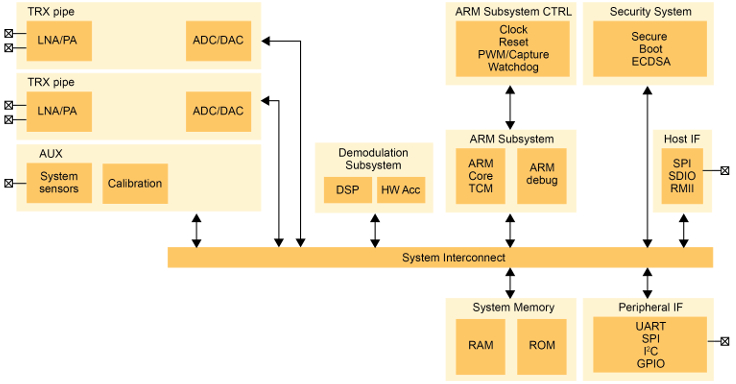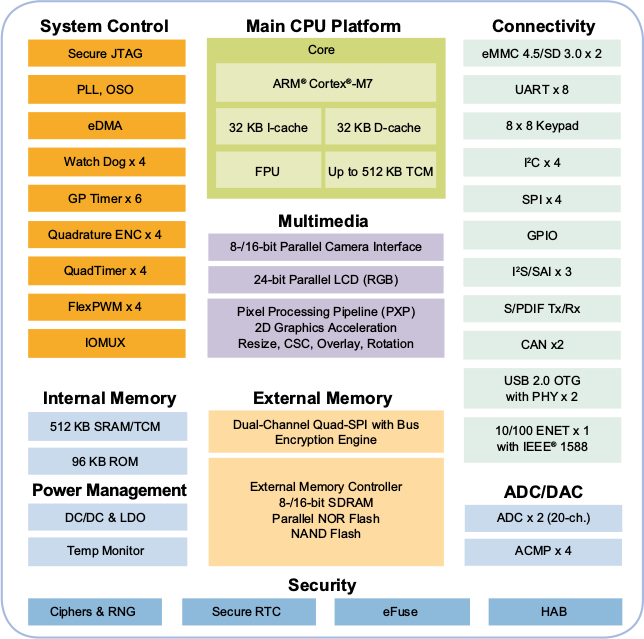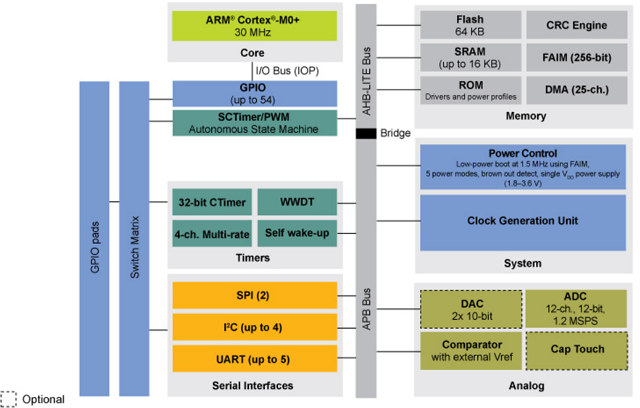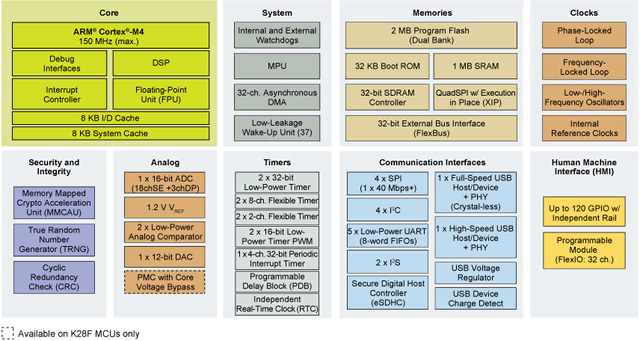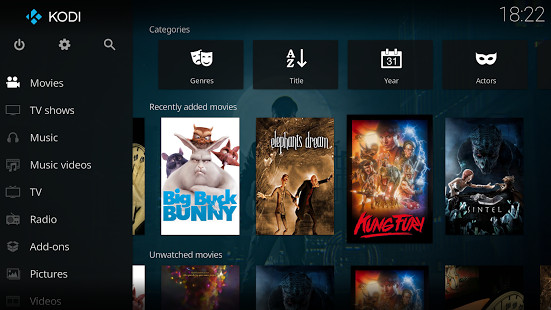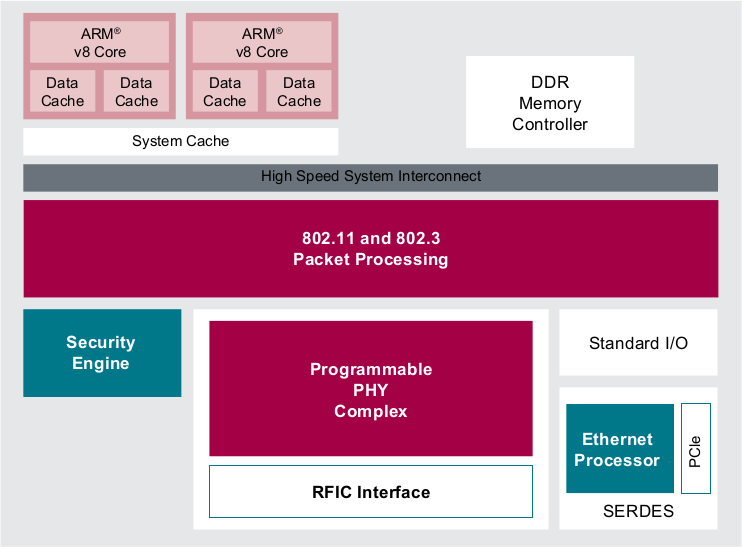Linaro Connect San Francisco 2017 is now taking place until September 29, and it all started yesterday with the Welcome Keynote by George Grey, Linaro CEO discussing the various achievements since the last Linaro Connect in Budapest, and providing an insight to the future work to be done by the organization. The video is available on YouTube (embedded below), and since I watched it, I’ll provide a summary of what was discussed: Welcoming New Members – Kylin (China developed FreeBSD operating systems) joined LEG (Enterprise Group), NXP added LHG (Home Group) membership, and Xilinx joined LITE (IoT and Embedded). Achievements OPTEE open portable trusted environment execution more commonly integrated into products. Details at optee.org. LEG 17.08 ERP release based on Linux 4.12, Debian 8.9 with UEFI, ACPI, DPDK, Bigtop, Hadoop, etc… LITE group has been involved in Zephyr 1.9 release, notably contributing to LwM2M stack More projects to be found […]
NXP RoadLink SAF5400 is a Single Chip Secure DSRC/802.11p V2X Platform
Marvell unveiled 88W8987xA wireless SoC for V2X (Vehicle to Everything) applications supporting 802.11p WiFi, and DSRC (Dedicated Short Range Communications) last June, but NXP has recently launched Roadlink SAF5400 which it claims to be the world’s first “automotive qualified, high-performance single-chip DSRC modem” Key features for Roadlink SAF5400: Compliant with IEEE 802.11p, IEEE 1609.4 Compliant with: ETSI EN 302663 – Intelligent Transport Systems (ITS); Access layer specification for Intelligent Transport Systems operating in the 5 GHz frequency band ETSI EN 302571 – Intelligent Transport Systems (ITS); Radiocommunications equipment operating in the 5 855 MHz to 5 925 MHz frequency band; Harmonized EN covering the essential requirements of article 3.2 of the R&TTE Directive Compliant with ARIB T-109M – 700 MHz Band Intelligent Transport Systems Single channel handling for 802.11p reception/transmission. Includes Channel Switching Optional ECDSA verification: 2000 messages/sec (Brainpool/NIST curves 256 bits) Qualified in accordance with AEC-Q100 grade 2 Host […]
NXP i.MX RT Series Crossover Embedded Processor is Based on an ARM Cortex-M7 Core @ 600 MHz
Microcontrollers (MCUs) provide real-time processing, low power, low cost, and plenty of I/Os, but with security and user interface requirements of recent embedded devices, the processing power may be a limitation, and embedded systems designers may have to use an application processor instead gaining performance, but losing some of the benefits of MCUs. The bridge the gap between performance and usability, NXP has launched i.MX RT series of Crossover Embedded Processor which uses the powerful ARM Cortex-M7 MCU core clocked at up to 600 MHz, a frequency partially made possible by eliminating on-chip flash memory. The first member of the family is NXP i.MX RT1050 with the following key features and specifications: MCU Core – ARM Cortex-M7 @ up to 600 MHz; 3015 CoreMark / 1284 DMIPS Memory – Up to 512KB SRAM/TCM (Tighly Coupled Memory) with response time as low as 20 ns Storage – 96KB RAM; interfaces: NAND, […]
NXP Unveils LPC84x ARM Cortex M0+ MCU Family, and LPCXpresso845-MAX Evaluation Board
NXP Semiconductors has expanded LPC800 series MCUs with the new LPC84x family of 32-bit ARM Cortex-M0+ microcontroller said to offer 10 times the performance, three times more power saving savings, and 50 percent smaller code-size than 8- or 16-bit microcontrollers. Key features of LPC84x MCU family (LPC844 / LPC845): MCU Core – ARM Cortex-M0+ core @ 30 MHz with advanced power optimization RAM – 16 kB RAM (Logic for Bit banding across all of SRAM) Storage – 64 kB Flash, small 64-byte page size suitable for EEPROM emulation Peripherals Timers – 32-bit CTimer, WWDT, 4-channel multi-rate, SCTimer/PWM Serial Interfaces – Up to 4x I2C, 2x SPI, up to 5x UART Analog Interfaces – 12 ch, 12-bit ADC up to 1.2 Msps; 2x 10-bit DAC; comparator with external Vreg; 9-channel capacitive touch interface working in sleep and deep sleep modes Up to 54 GPIOs 25-ch DMA offloads core Power Control Five […]
Does That Crane or Drilling Rig Run mainline Linux?
Linux 4.11 has just been released, and as usual I looked into the changelog especially checking out work done on ARM architecture, and some newly supported SoCs or board. One line in the log caught my attention: “Liebherr (LWN) monitor 6 based on i.MX6 Quad, no idea what this is”. So I had a look, and Liebherr-Werk Nenzing GmbH is a swiss company specializing in construction machines and maritime cranes such as “crawler cranes, duty-cycle crawler cranes, as well as piling and drilling rigs”. The DTS file for LWN Monitor 6 shows an NXP i.MX 6Quad processor is used in a product with an LVDS display and various interfaces such as I2C, PWM, SPI, and so on. So it could be some kind of control panel for one or more of their equipment. After looking into some PDF documentation, we can see on page 10 that the company mentions Litronic […]
NXP Introduces Kinetis K27/K28 MCU, QorIQ Layerscape LS1028A Industrial SoC, and i.MX 8X Cortex A35 SoC Family
NXP pushed out several press releases with the start of Embedded World 2017 in Germany, including three new micro-controllers/processors addressing different market segments: Kinetis K27/K28 MCU Cortex M4 MCU family, QorIQ Layerscape LS1028A industrial applications processor, and i.MX 8X SoC family for display and audio applications, 3D graphic display clusters, telematics and V2X (Vehicle to everything). NXP Kinetis K27/K28 MCU NXP Kinetis K27/K28 MCU family is based on an ARM Cortex-M4 core clocked at up to 150 MHz with FPU,and includes up to 1MB embedded SRAM, 2MB flash, and especially target portable display applications. Kinetis K27/K28 MCUs share the following main features: 2x I2S interfaces, 2x USB Controllers (High-Speed with integrated High-Speed PHY and Full-Speed) and mainstream analog peripherals 32-bit SDRAM memory controller and QuadSPI interface supporting eXecution-In-Place (XiP) True Random Number Generator, Cyclic Redundancy Check, Memory Mapped Cryptographic Acceleration Unit K28 supports 3 input supply voltage rails (1.2V, 1.8V […]
LibreELEC v8.0.0 Released with Kodi 17.0 (Krypton)
LibreELEC is a JeOS (Just enough Operating System) based on Linux that creates a media center appliance platform for Kodi (formelly XBMC), and a fork of OpenELEC. The developers have now released LibreELEC v8.0.0 with the latest Kodi 17.0 “Krypton”. Beside the update to Kodi 17, some of the changes since the last stable version (v7.95.3) include: Fix for TVheadend issues in the WeTek Play 2 DVB driver Fix for interactive governor causing slowdown issues on the WeTek Core Fix for missing Bluetooth “connect and trust” option when pairing Fix for missing ir-keytable streamzap support after recent changes Updates to refine lirc repeat timing changes Update WeTek Play 2 remote keymap to expose more buttons Updates to linux-amlogic 3.10 (arm) and 3.14 (aarch64) kernels Add hexdump busybox applet needed for Odroid_C2 overclocking The full list of changes can be found on github. While it’s possible to update from an existing […]
NXP QorIQ LayerScape LA1575 Programmable Wireless SoC to Support 5G, 802.11ax & 802.11ad WiFi, and Wireline
NXP has recently announced QorIQ LayerScape LA1575 programmable wireless platform with two ARMv8 cores, and simultaneous multi-standard support for 5G, Wi-Fi (802.11 ac and 802.11ax) and Wireline systems for enterprise and high-end home gateways. QorIQ LayerScape LA1575 key features and specifications: Multicore ARMv8 Processors for user applications DDR4 with ECC Programmable accelerator engines for signal processing. Programmable low latency MAC layer processing engines Programmable high performance packet processing engines to over 10 Gbps Configurable cryptographic offload engines Simultaneous multi-standard support for 5G, Wi-Fi (802.11 ac and 802.11ax) and Wireline systems Multiple Ethernet interfaces including 10Gbps PCIe gen 3.0 Integrated Trust architecture Single source clocking The main benefit of this SoC is that is is programmable, so even if some standards evolve after the release, it can be re-programmed to reflects the changes in specifications. Just to refresh everybody’s memory: 5G is the successor of 4G/LTE scheduled to start (Wave 1) around 2018, […]



